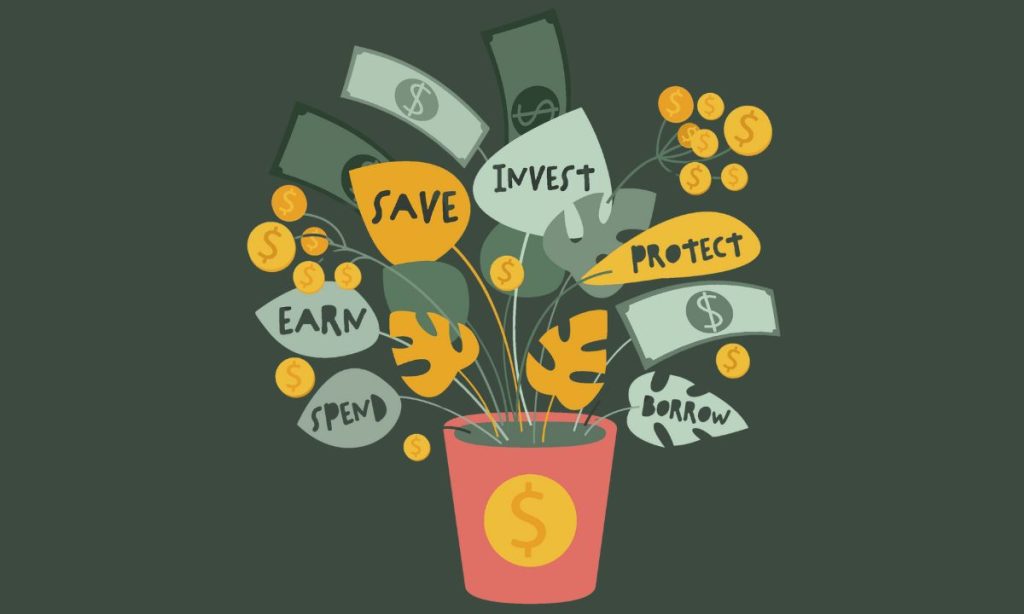JAKARTA, incaschool.sch.id – In an ever-changing economic landscape, financial education has become an essential skill for achieving future success. Despite its importance, many individuals leave school without a solid understanding of personal finance, budgeting, investing, and other critical financial concepts. This article shares my journey and insights on financial education, emphasizing the need for money smarts and practical strategies for managing finances effectively.
The Importance of Financial Education

1. Building Financial Literacy
Financial education is the foundation of financial literacy, which empowers individuals to make informed decisions about their money. Understanding basic financial concepts enables people to navigate the complexities of personal finance confidently.
2. Preparing for Financial Independence
A solid financial education prepares individuals for financial independence. By learning how to budget, save, and invest, people can take control of their financial futures and reduce reliance on external support.
3. Reducing Financial Stress
Many individuals experience anxiety and stress related to money management. Financial education equips people with the tools to manage their finances effectively, alleviating financial stress and promoting overall well-being.
4. Enhancing Career Opportunities
Employers increasingly value financial literacy among employees. Understanding financial principles can enhance career opportunities, particularly in fields such as business, finance, and management.
My Journey to Financial Education
1. Recognizing the Need for Financial Knowledge
My journey into financial education began with a realization of how little I knew about managing my finances. Like many, I graduated from school with minimal knowledge about budgeting, credit, and investing.
Action Steps
- Reflect on Personal Experiences: I took time to reflect on my own financial experiences, identifying areas where I struggled or lacked knowledge.
- Seek Guidance: I reached out to mentors and financial professionals to gain insights into the importance of financial education.
2. Educating Myself
Determined to improve my financial literacy, I began educating myself on various financial topics.
Action Steps
- Read Books and Articles: I explored a variety of books and online resources focused on personal finance, budgeting, and investing.
- Attend Workshops: I participated in financial literacy workshops offered by local organizations and community colleges to gain practical knowledge.
3. Creating a Budget
One of the first steps I took toward financial education was creating a personal budget. This simple yet powerful tool helped me understand my income, expenses, and savings goals.
Action Steps
- Track Income and Expenses: I started monitoring my income and expenses to recognize spending habits and identify areas for enhancement.
- Set Financial Goals: I established short-term and long-term financial goals to guide my budgeting process and motivate me to save.
4. Understanding Credit and Debt
Understanding credit and debt management was crucial in my journey toward financial education. I learned the importance of maintaining a good credit score and managing debt responsibly.
Action Steps
- Research Credit Scores: I educated myself about credit scores, how they are calculated, and their impact on borrowing.
- Create a Debt Repayment Plan: I developed a plan to pay off existing debts, prioritizing high-interest debts first while making consistent payments.
5. Exploring Saving and Investing
As I became more comfortable with budgeting and debt management, I turned my attention to saving and investing for the future.
Action Steps
- Establish an Emergency Fund: I prioritized building an emergency fund to cover unexpected expenses, providing financial security.
- Learn About Investing: I explored different investment options, such as stocks, bonds, and mutual funds, to understand how to grow my wealth over time.
6. Sharing Knowledge with Others
Recognizing the importance of financial education, I felt compelled to share my knowledge with others. Empowering others to become financially literate became a passion of mine.
Action Steps
- Host Financial Literacy Workshops: I organized workshops in my community to educate others about budgeting, saving, and investing.
- Create Online Resources: I developed online content, such as blogs and videos, to reach a wider audience and provide accessible financial education.
7. Advocating for Financial Education in Schools
I realized that financial education should be a fundamental part of the school curriculum. Advocating for financial literacy education in schools became a key focus of my efforts.
Action Steps
- Collaborate with Educators: I worked with teachers and school administrators to integrate financial education into existing curricula.
- Promote Community Programs: I supported community initiatives aimed at providing financial literacy resources to students and families.
Conclusion
Financial education is a critical component of preparing for future success. My journey has taught me the importance of being money smart and the impact it can have on overall well-being and financial independence. By taking proactive steps to educate myself and sharing that knowledge with others, I have seen firsthand the transformative power of financial literacy.
As we navigate an increasingly complex financial landscape, it is essential for individuals to prioritize financial education. Whether through reading, attending workshops, or advocating for financial literacy in schools, everyone can take steps toward becoming financially educated. By doing so, we empower ourselves and others to make informed decisions, reduce financial stress, and build a prosperous future. Let’s commit to fostering a culture of financial education and ensure that everyone has the tools they need to succeed.
Improve Your Abilities: Explore Our content on Knowledge
Take a Look at Our Latest Article on Technology Integration!


